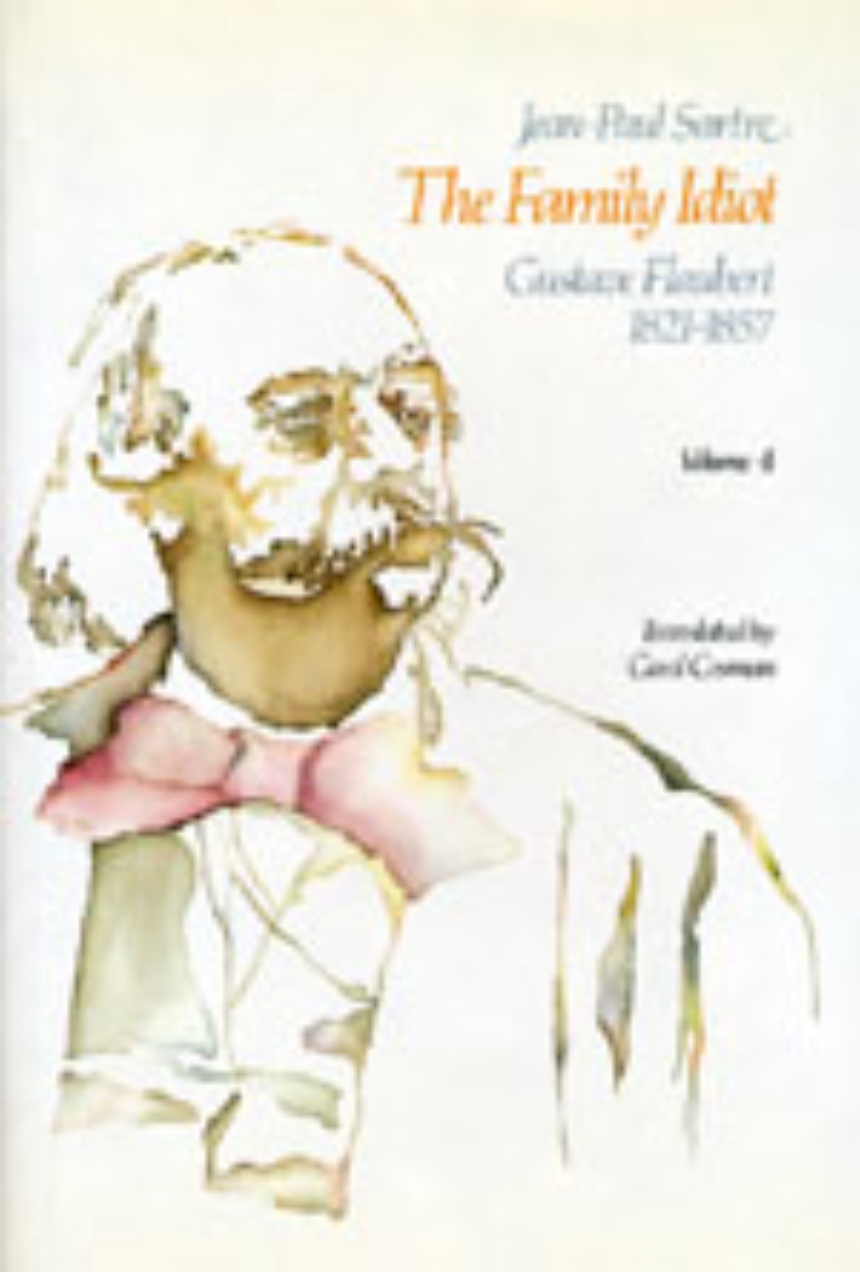The Family Idiot: Gustave Flaubert, 1821-1857, Volume 4
Seen by many as the culmination of Sartre’s thought and project, and viewed by Sartre himself as an attempt to answer the question, "What, at this point in time, can we know about a man?" this monumental work continues to perplex its fascinated critics and admirers, who have argued about its precise nature. However, as reviews of the first volume in this translation agreed, whatever The Family Idiot may be called—"a dialectic" (Fredric Jameson, New York Times Book Review); "biography, philosophy, or politics? Surely . . . all of these together" (Renee Winegarten, Commentary); "a new form of fiction?" (Victor Brombert, Times Literary Supplement); or simply, "mad, of course" (Julian Barnes, London Review of Books)—its prominent place in intellectual history is indisputable.
Volume 4 consists of part three, books one and two, of the original French work. This volume, the fourth in a projected five-volume English-language edition, includes Sartre’s discussion of the onset of Flaubert’s illness, or neurosis, in 1844, and a significant reading of his L’Education sentimentale.
Sartre’s approach to his complex subject, whether jaunty or judicious, psychoanalytic or political, is captured in all of its rich variety in Carol Cosman’s translation.
Volume 4 consists of part three, books one and two, of the original French work. This volume, the fourth in a projected five-volume English-language edition, includes Sartre’s discussion of the onset of Flaubert’s illness, or neurosis, in 1844, and a significant reading of his L’Education sentimentale.
Sartre’s approach to his complex subject, whether jaunty or judicious, psychoanalytic or political, is captured in all of its rich variety in Carol Cosman’s translation.
Table of Contents
Translator’s Note
Part Three: Elbehnon, or the Last Spiral
Book One: The "Fall" Seen as the Immediate, Negative, and Tactical Response to an Emergency
The Event
Gustave’s Diagnosis
Neurosis as Response
Book Two: The Crisis Seen as a Positive Strategy in the Light of Subsequent Facts; or, "Loser Wins" as a Conversion to Optimism
"Loser Wins" Rationalized
The Real Meaning of "Loser Wins"
Part Three: Elbehnon, or the Last Spiral
Book One: The "Fall" Seen as the Immediate, Negative, and Tactical Response to an Emergency
The Event
Gustave’s Diagnosis
Neurosis as Response
Book Two: The Crisis Seen as a Positive Strategy in the Light of Subsequent Facts; or, "Loser Wins" as a Conversion to Optimism
"Loser Wins" Rationalized
The Real Meaning of "Loser Wins"
